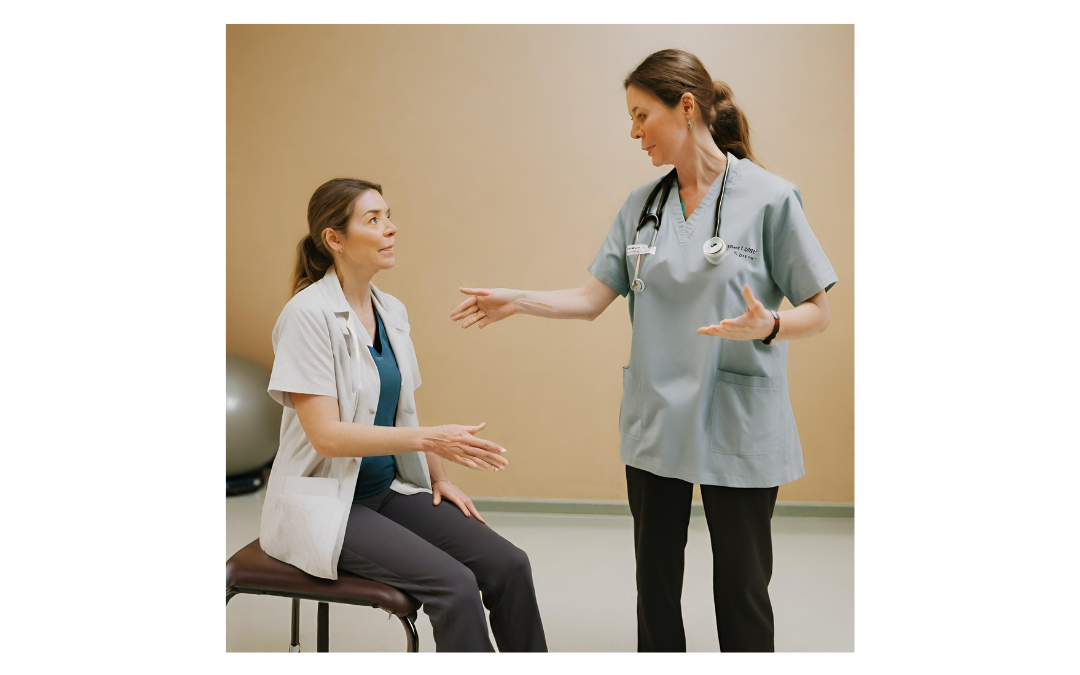Recovering from a stroke is a journey filled with challenges, victories, and moments of frustration. In this journey, the words spoken by healthcare professionals, particularly physical therapists (PT) and occupational therapists (OT), hold significant weight. Beyond just exercises and techniques, the language used by PTs and OTs can profoundly impact stroke survivors’ outlook, motivation, and overall recovery process.
Physical therapy (PT) and occupational therapy (OT) are essential components of stroke rehabilitation. While both disciplines focus on improving functional abilities, they have distinct roles:
- Physical Therapy (PT):
– PT primarily focuses on improving mobility, strength, balance, and coordination.
– Techniques may include exercises, stretches, gait training, and mobility aids.
– The goal is to enhance physical function and minimize disability.
- Occupational Therapy (OT):
– OT concentrates on helping individuals perform activities of daily living (ADLs) and regain independence.
– Techniques may involve adaptive strategies, assistive devices, and environmental modifications.
– The goal is to promote functional independence and facilitate participation in meaningful activities.
The Impact of Words:
The language used by PTs and OTs during rehabilitation sessions goes beyond mere instruction. It shapes the mindset, motivation, and emotional well-being of stroke survivors.
- Empowerment vs. Limitation:
– Words of encouragement and empowerment can instill hope and motivation in stroke survivors. Phrases like “You’re making great progress,” “You’re stronger than you think,” or “Keep pushing yourself” can inspire confidence and resilience.
– Conversely, overly negative or limiting language can deflate motivation and contribute to feelings of helplessness. Phrases such as “You’ll never regain full function” or “You’re too weak to do this” may hinder progress and diminish morale.
- Focus on Ability vs. Disability:
– PTs and OTs play a crucial role in shifting the focus from limitations to possibilities. By highlighting what stroke survivors can achieve rather than dwelling on deficits, therapists empower individuals to set achievable goals and work towards them.
– Positive reinforcement of even small achievements fosters a sense of accomplishment and encourages continued effort. Whether it’s successfully completing a new exercise or mastering a daily task, celebrating progress reinforces the belief in one’s ability to improve.
- Collaboration and Support:
– Effective communication between therapists and stroke survivors is vital for building trust, fostering collaboration, and addressing concerns. Open dialogue allows individuals to express their challenges, preferences, and goals, facilitating a more personalized approach to rehabilitation.
– Therapists also serve as sources of emotional support, offering empathy, encouragement, and guidance throughout the recovery process. Compassionate listening and validation of struggles validate the individual’s experience and promote resilience.
Conclusion:
The words spoken by physical therapists (PT) and occupational therapists (OT) wield immense power in the journey of stroke recovery. Beyond just exercises and techniques, the language used by therapists can shape the mindset, motivation, and emotional well-being of stroke survivors. By employing empowering, positive language and fostering collaborative, supportive relationships, PTs and OTs play a pivotal role in helping individuals rebuild their lives after stroke, one word at a time.
These articles, crafted by LeeAnn Seung Walton with insights from medical resources and ChatGPT, serve as a valuable reference guide. While these materials provide useful information, it’s crucial to consult your doctor for any additional questions or concerns.

